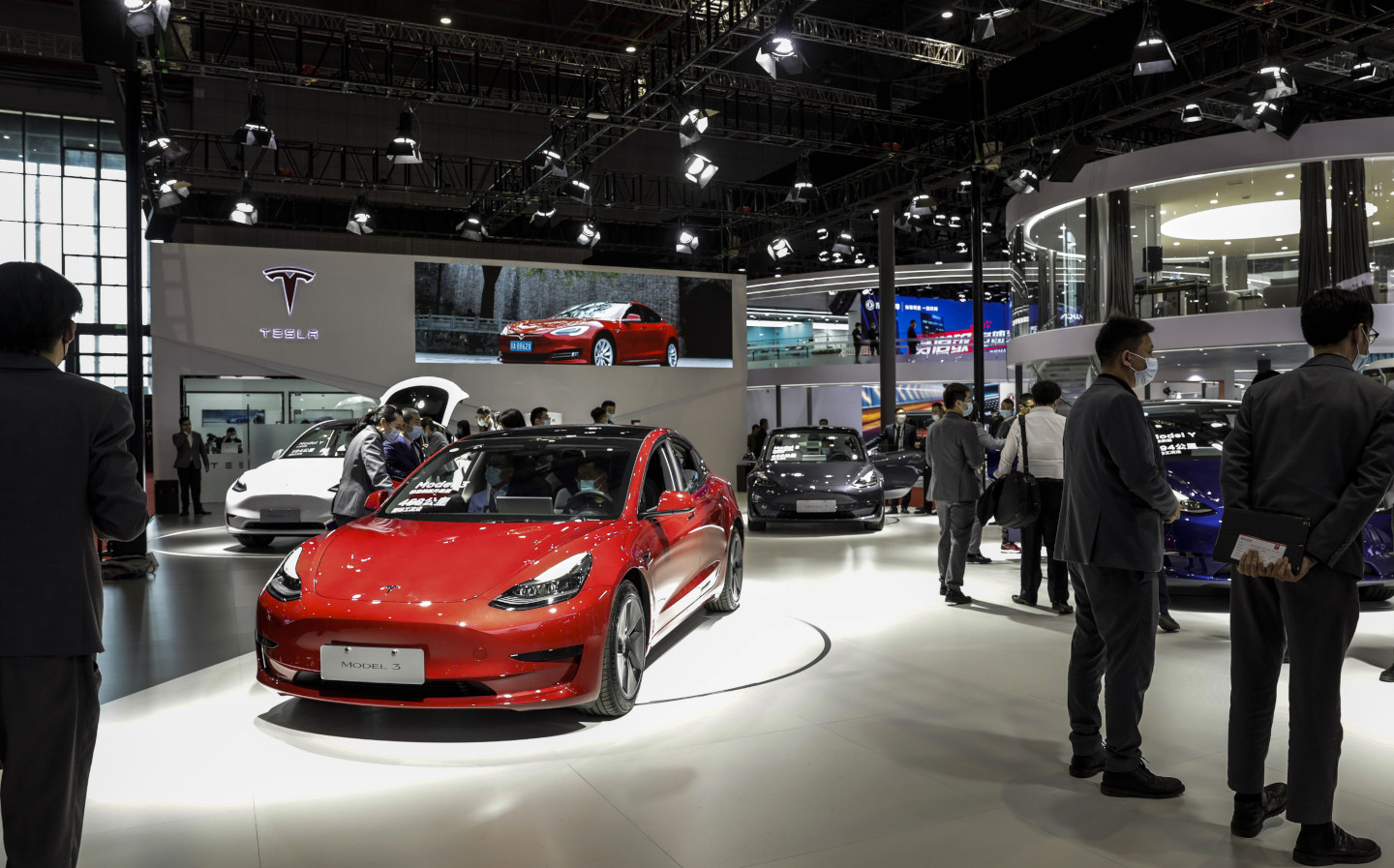Tesla blasted by Chinese state media over alleged safety issues
Protester climbed onto Model 3 at Shanghai Auto Show
TESLA has been attacked by state-run Chinese media over safety issues, after a video of a protester standing on top of one of the electric car maker’s vehicles at the Shanghai Auto Show went viral.
The American company needs to improve its “quality and commitment to users” in order to gain the trust of motorists, according to an article published by Xinhua, China’s official state-run press agency.
A separate opinion piece published in the Xinhua Daily Telegraph criticised the “arrogant response” of Tesla executives to the incident.
Tesla has endured a tricky period in China: it was forced in February to recall more than 36,000 Model S and Model X vehicles over touch-screen issues, and last month it was reported that Chinese state officials would be banned from using Tesla cars due to fears over spying.
The California-based car maker, which has a 9.3 million sq. ft. “Gigafactory” in Shanghai that currently produces Tesla’s Model 3 saloon and Model Y SUV, has also been accused by Chinese authorities of quality issues, with customers reporting battery fires and abnormal acceleration, according to Bloomberg.
The female demonstrator at the Shanghai Auto Show was wearing a t-shirt bearing the Tesla logo and Chinese words that translate to “Brake Failure”. She climbed on top of a Model 3 and berated Tesla for what she alleged had been brake issues on her father’s car that caused him to crash into another vehicle.
A female Tesla owner climbed on top of a car’s roof at the Tesla booth to protest her car’s brake malfunction at the Shanghai auto show Monday. The booth beefed up its security after the incident. pic.twitter.com/ct7RmF1agM
— Global Times (@globaltimesnews) April 19, 2021
The Wall Street Journal identified the woman as Mrs. Zhang from the Hunan province, and reported that she “is widely known for repeatedly protesting against Tesla’s brake issue.”
The protestor was physically removed from the Model 3’s roof, and security at the booth was subsequently intensified.
In a statement published on Chinese social media platform Weibo, Tesla said that it had attempted to contact the woman to negotiate a solution to the problem but said it believed the crash had been caused by “excessive speed” rather than brake failure.
The incident occurred just two days after a car carrying two men from Texas crashed into a tree, causing a fire and killing both occupants. Police said that they are “almost 99% sure” that no one was in the driver’s seat of the vehicle, suggesting that the car’s semi-autonomous Autopilot function had been operating with no-one behind the wheel.
However, last night Tesla CEO Elon Musk insisted that data logs showed that the Autopilot function had not been engaged, and that the car (a 2019 Model S) was not equipped with “Full Self-Driving” (FSD) capabilities. Police have demanded crash data from Tesla.
Despite the alleged issues, Tesla still enjoys significant popularity in China, with more than 35,000 vehicles registered in the country last month.
As in other parts of the world, though, the world’s most valuable car company is facing increasingly stiff competition, with a raft of new electric cars unveiled at the Shanghai show this week. These come from heritage European brands including Volkswagen, BMW and Mercedes-Benz — the latter of which unveiled its EQB electric seven-seater in Shanghai yesterday — as well as Chinese brands such as BYD and Nio.
Another Chinese company, Evergrande NEV, displayed nine new models under the Hengchi marque at this week’s trade show, including the Model S-rivalling Hengchi 1. The company has been valued at $87bn (£62.2bn) — more than Ford — despite having never sold a single car.
Tweet to @KieranAhuja Follow @KieranAhuja
- After reading that Tesla has been blasted by Chinese state media over safety issues, you might be interested in reading about the new Model S, which comes with a 1,100bhp+ Plaid variant.
- Last month Elon Musk revealed that Tesla will now accept Bitcoin as payment.
- Matchbox, the toy cars that were a rage in the seventies, will undergo a sustainable relaunch with a 99% recycled version of the new Roadster.





